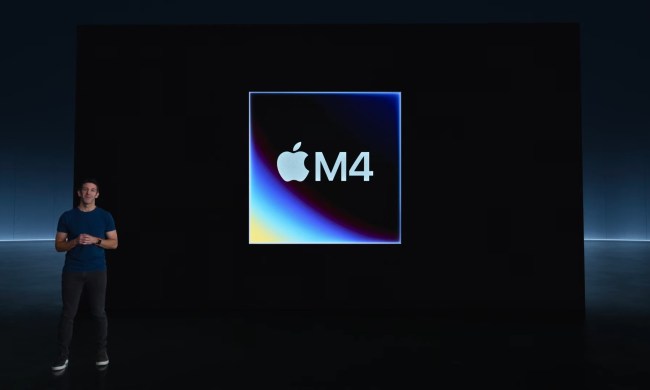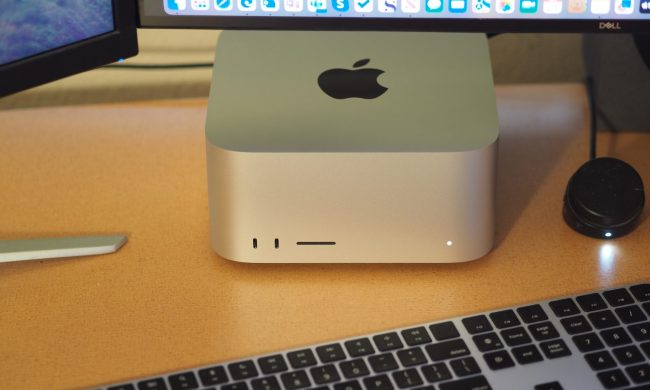Researchers have released details of an Apple Silicon vulnerability dubbed “Augury.” However, it doesn’t seem to be a huge issue at the moment.
Jose Rodrigo Sanchez Vicarte from the University of Illinois at Urbana-Champaign and Michael Flanders of the University of Washington published their findings of a flaw within Apple Silicon. The vulnerability itself is due to a flaw in Apple’s implementation of the Data-Memory Dependent Prefetcher (DMP).
In short, a DMP looks at memory to determine what content to “prefetch” for the CPU. The researchers found that Apple’s M1, M1 Max, and A14 chips used an “array of pointers” pattern that loops through an array and dereferences the contents.
This could possibly leak data that’s not read because it gets dereferenced by the prefetcher. Apple’s implementation is different from a traditional prefetcher as explained by the paper.
“Once it has seen *arr[0] … *arr[2] occur (even speculatively!) it will begin prefetching *arr[3] onward. That is, it will first prefetch ahead the contents of arr and then dereference those contents. In contrast, a conventional prefetcher would not perform the second step/dereference operation.”
Because the CPU cores never read the data, defenses that try to track access to the data don’t work against the Augery vulnerability.
David Kohlbrenner, assistant professor at the University of Washington, downplayed the impact of Augery, noting that Apple’s DMP “is about the weakest DMP an attacker can get.”
The good news here is that this is about the weakest DMP an attacker can get. It only prefetches when content is a valid virtual address, and has number of odd limitations. We show this can be used to leak pointers and break ASLR.
We believe there are better attacks possible.
— David Kohlbrenner (@dkohlbre) April 29, 2022
For now, researchers say that only the pointers can be accessed and even then via the research sandbox environment used to research the vulnerability. Apple was also notified about the vulnerability before the public disclosure, so a patch is likely incoming soon.
Apple issued a March 2022 patch for MacOS Monterey that fixed some nasty Bluetooth and display bugs. It also patched two vulnerabilities that allowed an application to execute code with kernel-level privileges.
Other critical fixes to Apple’s desktop operating system include one that patched a vulnerability that exposed browsing data in the Safari browser.
Finding bugs in Apple’s hardware can sometimes net a pretty profit. A Ph.D. student from Georgia Tech found a major vulnerability that allowed unauthorized access to the webcam. Apple handsomely rewarded him about $100,000 for his efforts.



